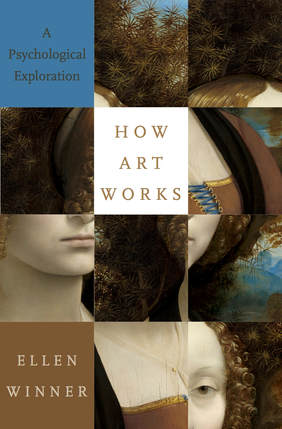 The School of Art and Design at Northern Illinois University will host a guest lecture by artist and experimental psychologist Dr. Ellen Winner, titled “How Art Works: Five Puzzles.”
The School of Art and Design at Northern Illinois University will host a guest lecture by artist and experimental psychologist Dr. Ellen Winner, titled “How Art Works: Five Puzzles.”
Winner is professor of psychology at Boston College and senior research associate at Project Zero, Harvard Graduate School of Education. She directs the Arts and Mind Lab, which focuses on cognition in the arts in typical and gifted children as well as adults.
In her lecture, “How Arts Works: Five Puzzles,” Winner will discuss puzzles about the arts that have preoccupied philosophers as well as the general public. Can art be defined? Why do we seek out art that elicits negative emotions like sadness and fear? Why do we devalue a revered work once it is outed as a forgery? Is abstract art something “my kid could have done”? Does art enhance empathy? As a social scientist, she has tried to answer some of these questions through interviews, observations, and experiments. What she and other psychologists have found reveals surprising answers to these artistic mysteries, and helps us understand how art works on us.
The talk will be held virtually, Tuesday, November 10 at 4 p.m. Central Standard Time. Register today at Zoom.us, there is no cost to attend the lecture.
Winner’s most recent book is also titled “How Art Works.”
 In it, she examines how psychologists have approached philosophical questions about the arts —
In it, she examines how psychologists have approached philosophical questions about the arts —
- What makes us call something art?
- Do we experience “real” emotions from the arts?
- Do we believe aesthetic judgments have truth value?
- Does engagement in the arts make us smarter?
- Does reading fiction make us more empathetic?
- Do beliefs about the artist’s process shape aesthetic judgments?
- Is modern art something my kid could do?
- What’s wrong with a perfect fake?
- Is achieving greatness in art a matter of 10,000 hours of hard work?
Philosophers and laypeople have long puzzled about these kinds of questions. Psychologists have now begun to explore these questions empirically, and have made many fascinating discoveries using the methods of social science.
She has written over 200 articles and is author of four books and coauthor of three: Invented Worlds: The Psychology of the Arts (1982); The Point of Words: Children’s Understanding of Metaphor and Irony (1988); Gifted Children: Myths and Realities (1996); How Art Works: A Psychological Exploration (2018); and co-author of Studio Thinking: The Real Benefits of Visual Arts Education (2007), Studio Thinking 2: The Real Benefits of Visual Arts Education (2013); Studio Thinking from the Start: The K-8 Art Educator’s Handbook.
She has served as President of APA’s Division 10, Psychology and the Arts in 1995-1996, and received the Rudolf Arnheim Award for Outstanding Research by a Senior Scholar in Psychology and the Arts from Division 10 in 2000. She is a fellow of APA Division 10 and of the International Association of Empirical Aesthetics.
